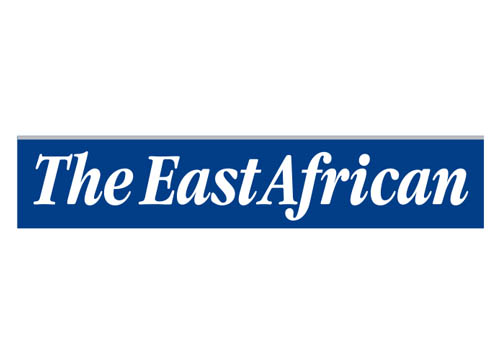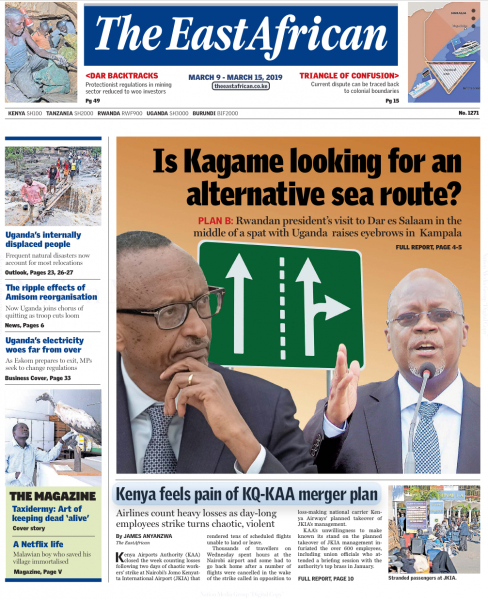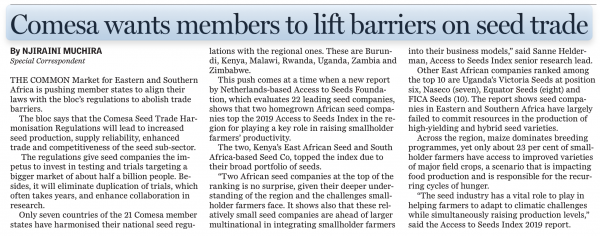The East African, 9 Mar 2019
By NJIRAINI MUCHIRA
THE COMMON Market for Eastern and Southern Africa is pushing member states to align their laws with the bloc’s regulations to abolish trade barriers. The bloc says that the Comesa Seed Trade Harmonisation Regulations will lead to increased seed production, supply reliability, enhanced trade and competitiveness of the seed sub-sector.
The regulations give seed companies the impetus to invest in testing and trials targeting a bigger market of about half a billion people. Besides, it will eliminate duplication of trials, which often takes years, and enhance collaboration in research. Only seven countries of the 21 Comesa member states have harmonised their national seed regulations with the regional ones. These are Burundi, Kenya, Malawi, Rwanda, Uganda, Zambia and Zimbabwe.
This push comes at a time when a new report by Netherlands-based Access to Seeds Foundation, which evaluates 22 leading seed companies, shows that two homegrown African seed companies top the 2019 Access to Seeds Index in the region for playing a key role in raising smallholder farmers’ productivity. The two, Kenya’s East African Seed and South Africa-based Seed Co, topped the index due to their broad portfolio of seeds.
“Two African seed companies at the top of the ranking is no surprise, given their deeper understanding of the region and the challenges smallholder farmers face. It shows also that these relatively small seed companies are ahead of larger multinational in integrating smallholder farmers into their business models,” said Sanne Helderman, Access to Seeds Index senior research lead. Other East African companies ranked among the top 10 are Uganda’s Victoria Seeds at position six, Naseco (seven), Equator Seeds (eight) and FICA Seeds (10). The report shows seed companies in Eastern and Southern Africa have largely failed to commit resources in the production of high-yielding and hybrid seed varieties.
Across the region, maize dominates breeding programmes, yet only about 23 per cent of smallholder farmers have access to improved varieties of major field crops, a scenario that is impacting food production and is responsible for the recurring cycles of hunger.“The seed industry has a vital role to play in helping farmers to adapt to climatic challenges while simultaneously raising production levels,” said the Access to Seeds Index 2019 report.






